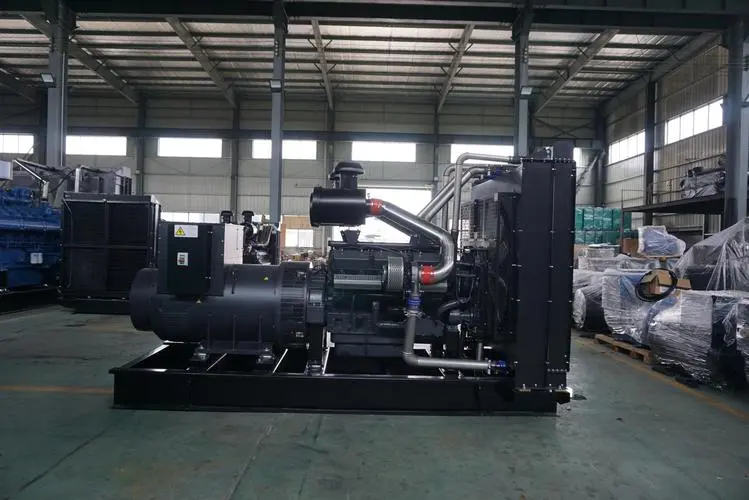Introduction
Diesel generators have long been a reliable source of backup power in a variety of settings, from hospitals to data centers. One of the key benefits of diesel generators is their ability to provide a steady and consistent power supply, even in the face of extended outages or emergencies. In harsh environments where the reliability of the power grid may be compromised, diesel generators play a critical role in ensuring the continuity of essential services and operations. In this article, we will explore the importance of diesel generators in harsh environments and discuss the key considerations for selecting and maintaining these critical pieces of equipment.
Importance of Diesel Generators in Harsh Environments
Harsh environments present a range of challenges that can impact the stability and reliability of the power supply. These environments may include extreme temperatures, high humidity, exposure to dust and debris, or remote locations with limited access to the grid. In such conditions, the need for a reliable backup power source becomes paramount to ensure the uninterrupted operation of critical systems and equipment.
Diesel generators are well-suited for harsh environments due to their robust design and ability to operate in a wide range of conditions. Unlike other types of generators, diesel generators are known for their durability, efficiency, and long lifespan, making them an ideal choice for applications where reliability is of utmost importance. In addition, diesel fuel is readily available and can be stored for long periods without degradation, making diesel generators a practical solution for remote or off-grid locations.
Key Considerations for Selecting Diesel Generators for Harsh Environments
When selecting a diesel generator for use in a harsh environment, several key considerations should be taken into account to ensure optimal performance and reliability. These considerations include:
1. Power Output: The power output of the generator should be sufficient to meet the demands of the equipment or systems it will be powering. It is important to accurately assess the power requirements of the load and select a generator with an appropriate power rating to avoid overloading or underpowering.

2. Fuel Efficiency: Diesel generators are known for their fuel efficiency, but in harsh environments where fuel availability may be limited, it is important to select a generator that strikes the right balance between power output and fuel consumption. Opting for a generator with a high fuel efficiency rating can help reduce operating costs and extend the runtime of the generator on a single tank of fuel.
3. Environmental Considerations: Harsh environments can expose diesel generators to extreme temperatures, moisture, dust, and other environmental factors that can affect their performance. It is essential to choose a generator that is designed to withstand these conditions, with features such as weatherproof enclosures, corrosion-resistant components, and effective cooling systems.
4. Maintenance Requirements: Regular maintenance is crucial for ensuring the reliable operation of a diesel generator in a harsh environment. Consideration should be given to the ease of access for maintenance tasks, the availability of spare parts, and the level of technical expertise required for servicing the generator.
5. Noise Levels: In some environments, such as residential areas or noise-sensitive facilities, noise levels may be a concern. Selecting a diesel generator with low noise emissions can help minimize disruptions and ensure compliance with local regulations.
6. Remote Monitoring and Control: For generators installed in remote or inaccessible locations, remote monitoring and control capabilities can be invaluable for monitoring the status of the generator, detecting issues proactively, and initiating maintenance or repairs as needed.
Maintenance and Care of Diesel Generators in Harsh Environments
Proper maintenance and care are essential for maximizing the lifespan and reliability of diesel generators in harsh environments. Regular maintenance tasks should be performed according to the manufacturer's recommendations and may include:
1. Regular Inspections: Conduct routine visual inspections of the generator, fuel system, cooling system, and electrical connections to identify any signs of wear, damage, or leaks. Addressing issues promptly can prevent more significant problems from occurring.
2. Fuel Management: Ensure that the diesel fuel used in the generator is of high quality and free from contaminants that can clog fuel filters or injectors. Store fuel in clean, dry, and well-ventilated containers to prevent degradation.
3. Cooling System Maintenance: Check the coolant levels, hoses, and radiator for leaks or blockages regularly. Overheating can cause significant damage to the generator's engine and components, so it is essential to keep the cooling system in good working order.
4. Battery Maintenance: Inspect the battery for corrosion, ensure that the connections are tight and clean, and monitor the battery voltage regularly to prevent starting issues or power failures.
5. Load Testing: Periodically test the generator under load conditions to verify that it can handle the expected power requirements and identify any issues with the voltage or frequency output.
6. Emergency Preparedness: Develop and regularly review an emergency response plan that outlines the steps to take in the event of a generator failure, power outage, or other critical incidents. Ensure that all personnel are familiar with the plan and know their roles and responsibilities.
600kw diesel generator for small manufacturing play a crucial role in ensuring the reliability of power supply in harsh environments where the grid may be unreliable or inaccessible. By selecting a diesel generator that is well-suited to the specific requirements of the environment and performing regular maintenance and care, organizations can rely on these critical pieces of equipment to provide backup power when needed most. With proper planning and attention to detail, diesel generators can offer a dependable and efficient solution for maintaining power continuity in challenging conditions.
